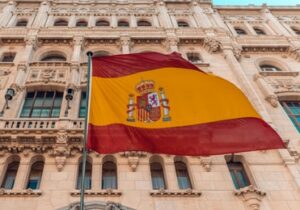Ready to embrace the digital nomad lifestyle in one of Europe’s most iconic destinations? Both Spain and Italy offer digital nomad visas, providing legal pathways for remote workers to live and work in Europe. However, their eligibility criteria, duration, and tax incentives differ. Spain’s visa is initially valid for 12 months, with the possibility of an extension and a three-year residence permit on renewal. Italy’s visa also starts with a one-year validity, renewable annually. Importantly, both countries offer a route to permanent residency after five years of continuous legal stay.
In this guide, we’ll look at the Spain Digital Nomad Visa vs Italy Digital Nomad Visa, breaking down everything you need to know—so you can choose the best digital nomad visa for your goals, budget, and future.
This guide covers:
Spain Digital Nomad Visa vs Italy Digital Nomad Visa Compared
Both Spain and Italy have recognized the global shift toward remote work and introduced dedicated digital nomad visa programs to attract international remote workers.
While they share some similarities, they differ in application processes, income requirements, tax regimes, and long-term benefits. Here’s how each one compares:
Spain Digital Nomad Visa
Spain’s Digital Nomad Visa allows non-EU remote workers to live and work legally in Spain. The initial residence permit is valid for three years if the application is submitted in Spain and for one year if the application is submitted at the Consulate of Spain. It’s extendable up to five years, with access to a 24% flat tax rate on income up to €600,000 for eligible individuals. Private health insurance is mandatory, and family members may be included with proof of additional income.
Italy Digital Nomad Visa
Italy’s Digital Nomad Visa targets highly qualified professionals working for a foreign employer. The visa is valid for one year, renewable annually, and must be applied for at an Italian consulate abroad. Applicants become tax residents if they stay over 183 days and are subject to progressive tax rates (23%–43%). Comprehensive medical insurance is required, and dependents can join if the main applicant applies at the consulate. If the spouse wants to reunify later, she or he will have to wait two years of the main applicant legally living in Italy. The visa offers a path to permanent residency after five years and citizenship after ten.
Spain vs Italy Digital Nomad Visa
Criteria | Spain | Italy |
Initial Residence Permit | 1 or 3 years depending on where the application is submitted, renewable up to 5 years | 1 year, renewable annually |
Minimum Annual Income | €33,144 | €28,000 |
Tax Regime | 24% flat rate (up to €600,000) - if applicable | 23%–43% progressive rates |
Application Location | Spain or Spanish consulate abroad | Only at Italian consulate abroad |
Family Inclusion | Yes, with additional income proof | Yes, with stricter financial validation (partner and minor children) |
Health Insurance | Private policy required | Comprehensive coverage required |
Visa-Free Travel | Yes, within Schengen Area | Yes, within Schengen countries |
Permanent Residency Path | After 5 years | After 5 years |
Citizenship Eligibility | After 5 years for permanent residency; citizenship after 10 years of total legal stay. | After 10 years |
Spain Digital Nomad Visa vs Italy Digital Nomad Visa Benefits
Spain
- Special Tax Incentives: Spain offers a highly competitive, special expat tax regime, allowing qualifying visa holders to pay a flat 24% income tax on earnings up to €600,000.
- Simplified Application Routes: Applicants can submit their visa application from their home country or within Spain, offering greater flexibility.
- Vibrant Digital Hubs: Cities like Barcelona, Valencia, Malaga, and Madrid are home to thriving digital nomad communities and coworking environment.
- Cost-Effective Living: Average monthly expenses in smaller cities up to 45% cheaper than in the UK and 50–60% lower than in major U.S. cities like New York or San Francisco. Public healthcare covers 99% of residents, and transport costs—with monthly passes averaging €30–€40—are over 60% cheaper than in London or New York.
- Fast-Track Residency: Spain offers one of the quickest processing times in Europe, with digital nomad visa approvals typically completed within 20–30 working days when applying from within the country. The system allows eligible applicants to obtain their residence permit in under a month, significantly faster than Italy’s 60–120 day timeline.
- European Integration: Holding a Spanish residence permit allows free movement across Schengen countries, ideal for frequent travelers and entrepreneurs.
- Path to Long-Term Residency: After five years of continuous legal stay, digital nomads become eligible to apply for permanent residency in Spain.
Italy
- Quality of Life & Culture: Italy boasts world-renowned cuisine, a slower pace of life, and a deep cultural heritage that appeals to remote professionals.
- Family-Friendly Environment: Ideal for relocating with family members, Italy offers strong education, public healthcare, and supportive social systems.
- Professional Prestige: The Italian digital nomad visa is designed for self-employed and highly qualified workers, enhancing credibility and mobility.
- Path to Long-Term Residency: After five years of legal stay, applicants can apply for permanent residency, with a pathway to Italian citizenship in the long run.
- European Integration: Holding an Italian residence permit allows free movement across Schengen countries, ideal for frequent travelers and entrepreneurs.
Spain Digital Nomad Visa vs Italy Digital Nomad Visa – Eligibility Requirements
Eligibility Criteria | Spain Digital Nomad Visa | Italy Digital Nomad Visa |
Nationality | Open to non-EU/EEA nationals | Open to non-EU & EEA nationals |
Work Type | Must be employed by a foreign company or self-employed with foreign clients | Must be a highly skilled remote worker employed or contracted by a foreign company |
Remote Work Experience | Minimum of 3 months remote work experience with the same employer or clients | At least 6 months of experience working remotely in current job prior to application |
Professional Qualifications | A university degree or proof of 3+ years of relevant work experience | A university degree or minimum 5 years of professional experience in the relevant field |
Criminal Record | Must provide a clean criminal record certificate | Required to submit a clean criminal record from the country of residence |
Health Insurance | Must show proof of private health insurance coverage valid in Spain | Must hold comprehensive medical insurance that covers their entire stay in Italy |
Proof of Accommodation | Required as part of the application | Proof of long-term residential accommodation in Italy is mandatory (at least 1 year lease agreement or own a property) |
Financial Requirements | Must meet the minimum income requirement of €2,763/month | Must demonstrate an annual income of at least €28,000 through official financial documentation (e.g., bank statements) |
Application Channel | Can apply from within Spain or through a Spanish consulate in your home country | Application must be submitted exclusively through an Italian consulate in the applicant's country of residence |
Spain Digital Nomad Visa vs Italy Digital Nomad Visa – Application Process
Spain Digital Nomad Visa application process
Spain offers a flexible process; apply in person at a Spanish consulate abroad, or if already in Spain on a tourist visa, submit the residence permit application online via the Ministry’s electronic office.
- Gather Required Documents: Including a valid passport, proof of remote work (such as contracts or letters from a foreign employer), bank statements, private health insurance coverage, accommodation details, and a clean criminal record.
- Submit Application: Apply for the one-year Digital Nomad Visa at a Spanish embassy in your home country, or directly apply for the three-year Digital Nomad Residence Permit within Spain.
- Biometric Submission: Provide biometrics as part of the application process.
- Residence Permit Application: If you applied for the visa from your home country, apply for the residence permit upon arrival in Spain.
- Obtain TIE (Foreigner Identity Card): Once approved, wait approximately 30 days to receive your TIE.
- Register Residence: Register your residence at the local City Hall (Certificado de Empadronamiento).
Processing Time: Typically ranges from one to three months, depending on the consulate or application volume.
Visa Validity: The initial visa is valid for one year, with the residence permit valid for three years and extendable for an additional two years.
Italy Digital Nomad Visa application process
Italy’s process is more structured, requiring applicants to begin in their home country and complete several steps upon arrival.
- Prepare Documentation: Gather all required documents, including a valid passport, proof of remote work (employment contract or evidence of self-employment), proof of income meeting the minimum requirement (€28,000 per year), comprehensive health insurance covering at least €30,000, proof of accommodation in Italy, and a clean criminal record.
- Complete Application Form: Fill out the Digital Nomad or Remote Worker Visa application form, ensuring all instructions are followed carefully.
- Schedule Appointment: Book an appointment at the Italian Embassy or Consulate in your country to submit your application, provide biometric data, and attend an interview.
- Submit Application: Attend your appointment and provide all necessary paperwork.
- Obtain Visa: If approved, receive a one-year visa.
- Travel to Italy: Enter the country within the visa’s validity period.
- Apply for Residence Permit: Within eight working days of arrival, apply at the local police headquarters (Questura) for your residence permit.
- Register Residence: Update your residence details at the Italian Office of Vital Statistics (Anagrafe).
Processing Time: Expected to take 30 to 60 days from the date of application submission, though it can extend up to 120 days.
Visa Validity: The visa is valid for one year and can be renewed annually, provided you continue to meet the requirements.
Spain Digital Nomad Visa vs Italy Digital Nomad Visa Cost
Spain Digital Nomad Visa application fees
- Application Fee: Approximately €90 when applying through a Spanish consulate abroad.
- In-Country Application: If applying from within Spain, the fee is around €73.26.
- Additional Costs: There may be extra charges, such as a fee for obtaining the Foreigner Identity Number (NIE) and costs related to the issuance of the residence permit card.
Note: Fees can vary depending on the consulate and are subject to change based on currency exchange rates and other factors.
Italy Digital Nomad Visa application fees
- Visa Application Fee: €116, payable at the Italian consulate.
- Postal Bulletin Fees:
- €30.46 for the visa processing.
- €50.00 for the issuance of the residence permit.
- Revenue Stamp: €16.00, required for the application.
Note: These fees are mandatory and should be paid at designated post offices in Italy.
Minimum Income Requirements for Spanish vs Italian Digital Nomad Visa
Minimum income requirement – Spain
A monthly income of at least €2,763
This figure is based on 200% of the Spanish minimum wage and is subject to annual updates. Additional income is required if you’re including family members in your application:
- Spouse or partner: Additional 75% of the national minimum income
- Each dependent child: Additional 25%
Applicants must provide documentation such as bank statements, employment contracts, or invoices if self-employed, proving consistent income over recent months.
Minimum income requirement – Italy
A minimum annual income of € 2,335/month
This requirement aligns with the threshold for “highly skilled workers” under Italian immigration law. Like Spain, applicants must also demonstrate financial stability if applying with family members, though Italy’s verification process is often more rigorous.
If applying with a spouse, you must show an annual income of €37,860/year (€3,155/month), plus an additional €3,360/year (around 280€/month) per year for each child.
*Note that some consulates may require a higher minimum income.
Acceptable proof includes:
- Employment contracts
- Invoices for self-employed professionals
- Recent bank statements
- Tax returns from your home country or prior residency
Note that passive income (from investments or rental properties) is not typically accepted—income must come from remote work for a foreign employer or self-employment serving international clients.
How Can Global Citizen Solutions Help You?
Global Citizen Solutions is a boutique investment migration consultancy firm focused on finding the right residency or citizenship by investment program for individuals wishing to secure their future and become global citizens. With offices in Portugal, the United Kingdom, Hong Kong, and Brazil, our multilingual team guides individuals and families from start to finish, providing expert advice considering freedom, mobility, taxation, and security.
- We have helped hundreds of clients from 35+ countries in all the top residency by investment and citizenship by investment programs. With an in-depth and comprehensive understanding of the area, we provide our clients with solid guidance.
- Our team has never had a case rejected. Our 100 percent approval rate sets us apart from our competitors and guarantees that you can expect a successful application.
- Our transparent pricing covers all the processes from opening your bank account, document certification, and legal due diligence to investment and submission. As there is one fee for the entire process, you can be confident that you will not face any hidden costs later.
- All data is stored within a GDPR-compliant database on a secure SSL-encrypted server. You can be safe knowing that your personal data is treated with the utmost security.
- Global Citizen Solutions provides an all-encompassing solution. Our support can continue even after you receive your passport. We offer additional services such as company incorporation, Trusts, and Foundations formation.
- The BeGlobal Onboarding System® allows you to access the status of your application every step of the way, something that sets us apart from our competitors.

Frequently Asked Questions about Spain vs Italy Digital Nomad Visa
What is the difference between the Spain and Italy digital nomad visas?
The Spain digital nomad visa is more flexible in terms of application location, open to a wider range of remote workers, and comes with a favorable flat tax rate. The Italy digital nomad visa is geared toward highly skilled professionals, requires a higher level of experience, and has a longer and more structured application process.
Spain looks at what you will earn from the day of the application and forward, while Italy looks at the past, what you have earned in the last 2/3 years.
Which country is better for digital nomads: Spain or Italy?
Spain is generally more appealing to a broader range of digital nomads due to its flexible visa process, lower cost of living, and tax incentives. Italy, on the other hand, is ideal for experienced professionals seeking cultural immersion, long-term residency, and a path to citizenship in one of Europe’s most historic nations.
How do the eligibility requirements compare?
Spain requires non-EU applicants to have at least 3 months of remote work experience and a university degree or 3+ years of relevant experience. Italy requires at least 6 months of remote work experience in current job and a university degree or 5+ years of professional experience, making it slightly more selective.
Does Spain or Italy offer a faster application process?
Spain typically has a faster and more streamlined process, with approvals in 20–30 working days. Italy’s application can take up to 90–120 days, depending on the consulate and workload.
Which digital nomad visa is easier to get?
The Spain digital nomad visa is considered easier to obtain due to its broader eligibility, simpler documentation requirements, and flexible application submission from within Spain.
Can I bring my family?
Yes, both Spain and Italy allow you to include family members (spouse and dependents). However, both require you to demonstrate additional financial stability or income to support them during your stay.
Which country offers more advantageous taxes for digital nomads?
- Spain favors employees with a 24% flat tax under the Beckham Law. Freelancers face progressive rates (19%–47%) and social security unless covered by a bilateral agreement.
- Italy benefits freelancers with a 5% tax on 70% of income for five years under the forfettario regime, then 15%. Social contributions may also be credited with agreements.
- Best for: Spain suits employees; Italy favors freelancers.
How long can I stay?
- Spain: One-year visa, renewable up to five years
- Italy: One-year visa, renewable annually, with a pathway to permanent residency after 5 years
Which visa offers more flexibility for travel across Europe?
Both visas grant access to the Schengen Area, allowing visa holders to travel freely across 27 EU countries. However, Spain may offer more ease in terms of in-country mobility and switching from a tourist visa to residency.

 Patricia Casaburi
Patricia Casaburi
 A monthly income of at least €2,763
A monthly income of at least €2,763 A minimum annual income of € 2,335/month
A minimum annual income of € 2,335/month
